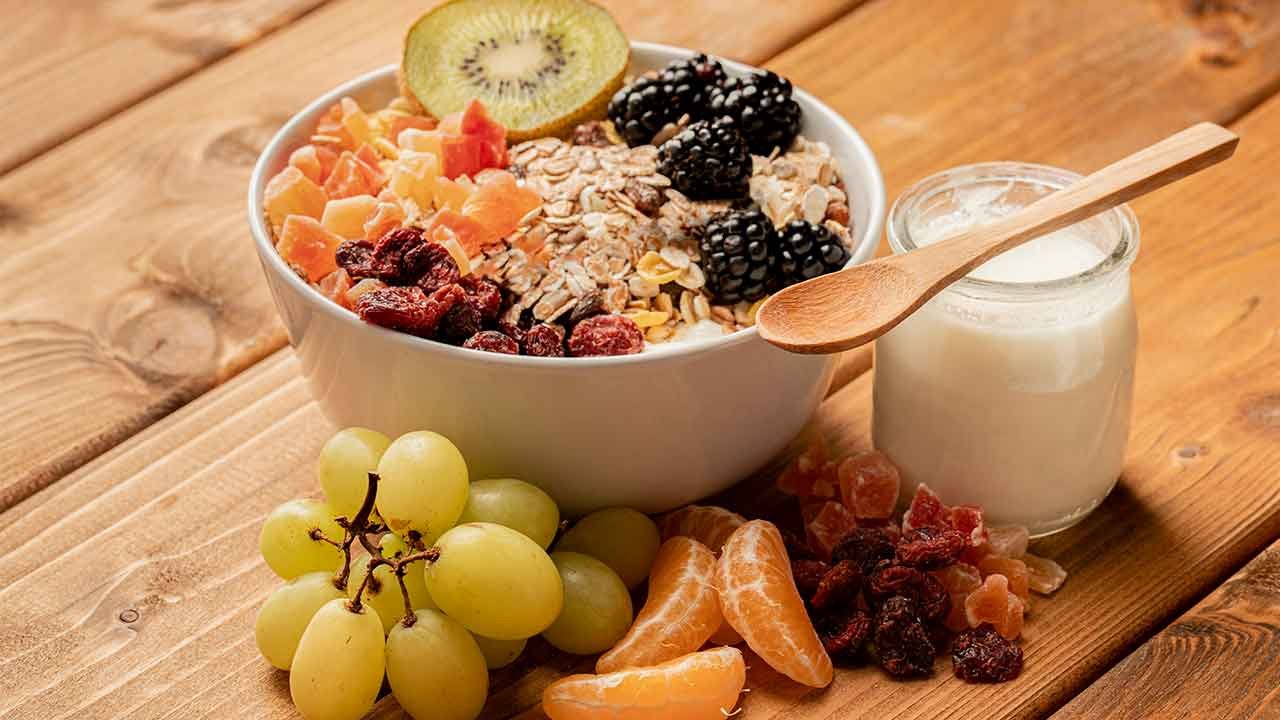- Too much fiber is bad?
- Side effects on the intestine
- Side effects for allergies
- Side effects on drug absorption
- Conclusions
Excess fiber is reflected on the organism with symptoms, especially concerning the gastro intestinal system. This is a condition frequently related to too many fiber supplements or, more rarely, an unbalanced diet because it is excessively high in fibrous residues: Bran, whole grains, legumes, vegetables, and fruits, and possibly low in the water.
Too much fiber is bad?
Fiber supplements are viscous and non-viscous. When taken in an already sufficiently high diet of fibrous residues, they can cause excess fiber and cause some side effects. The most common fiber supplements are based on isolated fibers, i.e.:
- Β’-glucan: readily fermentable viscous fibers in barley and oats and produced by fungi, yeasts, bacteria, and algae; the most commonly used health supplements come from oats, fungi, and yeasts.
- Pectin: viscous fibers extracted from the citrus peel or apple pulp; They are also a gel-making food additive.
- Inulin and oligofructose: are extracted from chicory or synthesized from sucrose; They’re a pretty common food additive. They are highly fermentable and have a prebiotic function on bifidobacteria.
- Guar gum: viscous and soluble fiber, a laxative product, but is also contained within “ready cereals” and other foodstuffs.
- Psyllium: diets low in saturated fat and cholesterol, which include 7g/day of soluble fiber from psyllium, can reduce the risk of heart disease.
- Chitosan: is undigestible glucosamine, a chitin polymer; it reduces fat absorption and is available as a dietary supplement for weight loss (unproven efficacy) and cholesterol-lowering.
All these fiber supplements should be taken with plenty of water (250ml) and recommended doses on the label. Too many fiber supplements and/or inadequate dietary water intake (abdominal tension, abdominal cramps, excess gas, and diarrhea).
Side effects on the intestine
There are fiber supplements that, more than others, cause the onset of specific symptoms associated with excess dietary fiber: guar gum, inulin, and oligofructose, fructooligosaccharides, polydextrose, resistant starch, and psyllium. In particular, excessive intake of guar gum and/or psyllium, which is associated with water insufficiency, may lead to intestinal occlusion and worsening symptoms in individuals with already impaired bowel motility. Also, in people with polyps of the rectum colon, the psyllium supplement seems directly related to the increase in the size of the precancerous adenomas.
Side effects for allergies
It should also be specified that certain fiber supplements, while NOT in excess, require special attention due to the allergenic potential. Chitin and chitosan, for example, which is extracted from crustaceans’ carapace, can cause even very severe allergic reactions in hypersensitive individuals; the same applies to the insulin extracted from chicory and the psyllium contained in “ready cereals”.
Side effects on drug absorption
Also, some fiber supplements may have negative pharmacological interactions with certain pharmacological molecules. This is again the case with psyllium, whose intake impairs the absorption of lithium:
- Carbamazepine (Tegretol)
- Digoxin (Lanoxin)
- Warfarin (Coumadin).
Also, Guar gum slows the absorption of digoxin, acetaminophen (Tylenol), and bumetanide (Bumex). It decreases metformin (Glucophage) absorption, penicillin, and certain formulations of glyburide (Glynase). On the other hand, Pectin reduces the absorption of lovastatin (Mevacor) and probably also clindamycin, tetracycline, and digoxin.
It is usually recommended that you take at least three hours to take a fiber supplement and take any medicine for safety reasons.
Conclusions
Achieving the recommended levels by staving off the side effects of excess fiber for too many supplements you take
The LARN (Recommended Daily Intake Levels of Nutrients for the Italian population) recommend achieving a fiber intake of about 30g/day. In parallel, the Food and Nutrition Board of the Institute of Medicine (2004) recommends observing a coefficient of 14g of fiber per 1000kcal taken to lower the risk of developing cardiovascular diseases. For adults over 50 years old, the same institution suggests maintaining a ratio of 38g/day for men and 21g/day for women.
Such intakes are easily reachable with the diet. Still, if necessary, fiber supplements may be used after consulting a diet professional who, using a medical history. Can estimate the correct daily dose to be taken without incurring the above side effects.
